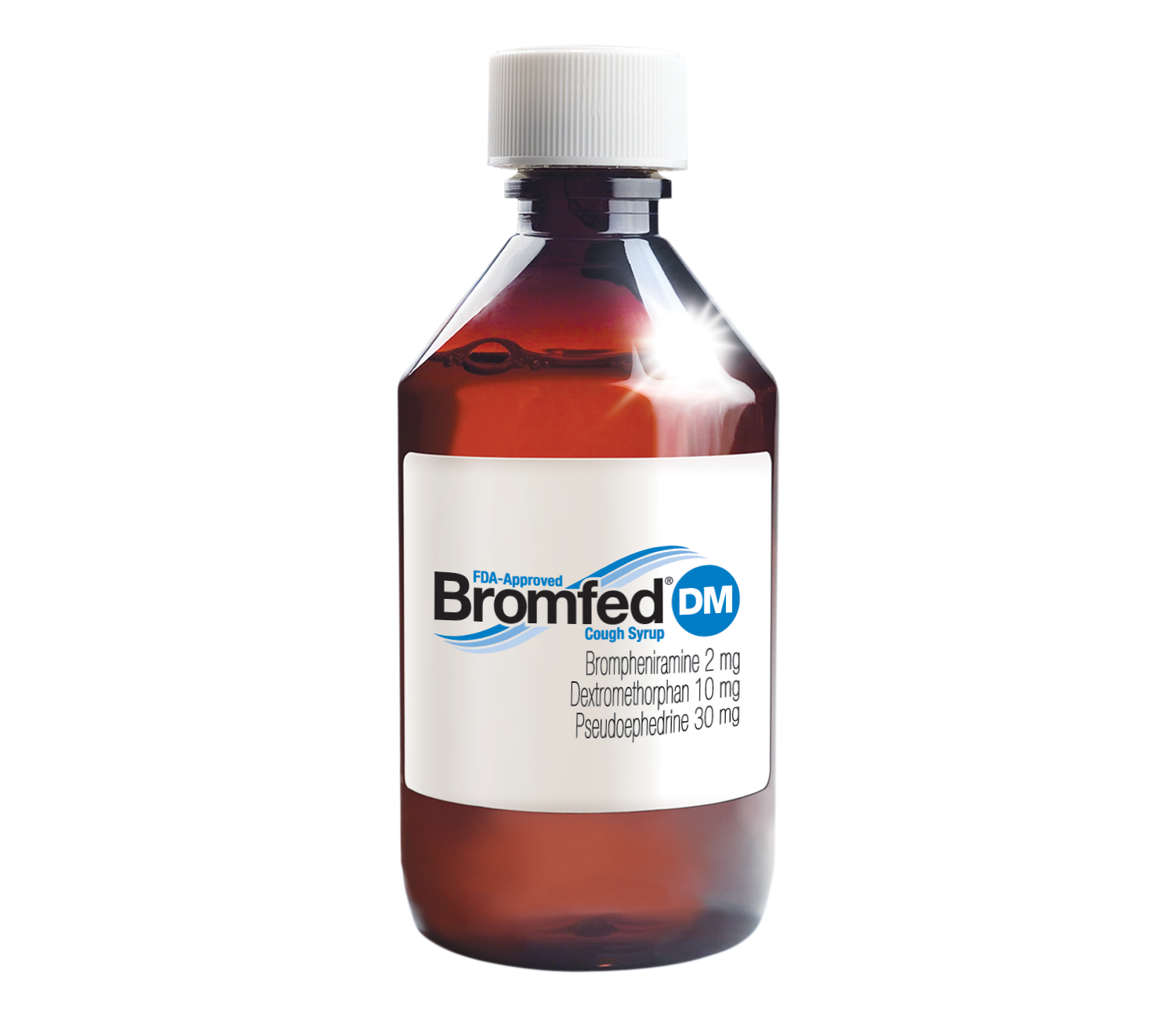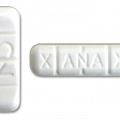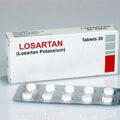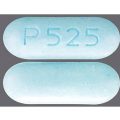What is Bromfed?
Bromfed is a medication used to treat symptoms caused by the common cold, flu, allergies, or other respiratory illness. Bromfed is a combination of brompheniramine, dextromethorphan, and pseudoephedrine.
Brompheniramine (an antihistamine) lowers inflammation caused by allergies or the common cold, dextromethorphan (a cough suppressant) lowers your urge to cough, and pseudoephedrine (a decongestant) clears your sinuses.
Bromfed is not a controlled substance but is available only on a prescription from your doctor. This is because it contains pseudoephedrine, a sought-after ingredient for the illicit manufacture of methamphetamine.
Typical dosing for Bromfed DM
Bromfed DM is taken by mouth. Take it as directed on the label. Use a specially marked oral syringe, spoon, or dropper to measure each dose. Ask your pharmacist if you do not have one. Household spoons are not accurate. Do not take it more often than directed.
Talk to your health care provider about the use of this medicine in children. While this drug may be prescribed for children as young as 2 years for selected conditions, precautions do apply. Typical dosing is as follows;
Children between 2 and 5 years old: The typical dosing is ½ teaspoonful (2.5 mL) by mouth every 4 hours.
Children between 6 and 11 years old: The typical dosing is 1 teaspoonful (5 mL) by mouth every 4 hours.
Adults and children over 12 years old: The typical dosing is 2 teaspoonfuls (10 mL) by mouth every 4 hours.
Patients over 65 years of age may have a stronger reaction to this medicine and need smaller doses. Do not exceed 6 doses during a 24-hour period.
Overdosage: If you think you have taken too much of this medicine contact a poison control center or emergency room at once.
NOTE: This medicine is only for you. Do not share this medicine with others.
Do they still produce Bromfed?
Yes, Bromfed has not been discontinued, it is still produced by Wockhardt and used to treat cough and the symptoms of allergies and colds. In fact, Acella Pharmaceuticals, LLC, a specialty pharmaceutical company, recently secured approval for a sugar-free bioequivalent of Bromfed DM. Generic versions of the combination are also still being produced by other companies.
Indications that may warrant discontinuing a medication include (i) diminished benefit, such as cases of clinical improvement or stabilization, or (ii) increased risks, such as medication-related adverse effects, drug interactions, and unsafe use such as high-risk drugs in older adults. Another reason for discontinuing a drug is if the federal agency overseeing the approval of drugs finds a problem with the formulation or finds some discrepancies in the manufacturing, then a recall is made and the drug is made unavailable from the market.
A drug may also be discontinued for economic reasons if the sale of a drug is no longer beneficial to the concerned pharmaceutical company, they might consider discontinuing the product and invest the money in some other products.
Is There Restriction When Buying Bromfed DM With Prescriptions?
Yes, The Combat Methamphetamine Epidemic Act of 2005 restricts the amount of pseudoephedrine that an individual can purchase each month is limited and individuals are required to present photo identification to purchase products containing pseudoephedrine like Bromfed DM. In addition, stores are required to keep personal information about purchasers for at least two years.
What are the side effects of Bromfed DM?
Common side effects may include:
- coughing up thick mucus;
- dizziness, drowsiness;
- dry mouth, nose, or throat.
- feeling restless or excited (especially in children); or
Get emergency medical help if you have signs of an allergic reaction: hives; difficult breathing; swelling of your face, lips, tongue, or throat.
Stop using this medicine and call your doctor at once if you have:
- hallucinations;
- a seizure;
- painful or difficult urination;
- a light-headed feeling, like you, might pass out;
- fast or pounding heartbeats;
- pale skin, weakness, easy bruising or bleeding, fever, chills, body aches; or
- severe headache, blurred vision, pounding in your neck or ears.
This is not a complete list of side effects and others may occur. Call your doctor for medical advice about side effects. You may report side effects to FDA at 1-800-FDA-1088.
Bromfed Dm Interactions
- Avoid drinking alcohol or using any other medicines that make you sleepy. These include sleeping pills, other cold and allergy medicine, narcotic pain relievers, and sedatives.
- Children may be more sensitive to this medicine than adults, especially if they take too much. Always read the medicine label closely so you give your child the right amount. Ask your pharmacist or doctor if you are not sure how much medicine to give your child.
- If your symptoms do not improve within 7 days or if they get worse, call your doctor. If you have a severe sore throat, fever, or thick yellow or green mucus, call your doctor.
- Some brands of this medicine may contain alcohol. Read the label carefully or ask your pharmacist so you know what is in your product.
- This medicine can make you drowsy or restless. Avoid taking it at bedtime if it makes you restless. Avoid driving, using machines, or doing anything else that could be dangerous if you are not alert.
- This medicine might contain phenylalanine (aspartame). This is only a concern if you have a disorder called phenylketonuria (a problem with amino acids). Talk to your doctor before using this medicine.
Note: Do not use Bromfed DM if you have used an MAO inhibitor in the past 14 days. A dangerous drug interaction could occur. MAO inhibitors include isocarboxazid, linezolid, methylene blue injection, phenelzine, and tranylcypromine.
What should I watch for while using this medication?
Visit your health care provider for regular checks on your progress. Tell your health care provider if your symptoms do not start to get better or if they get worse.
You may get drowsy or dizzy. Do not drive, use machinery, or do anything that needs mental alertness until you know how this medicine affects you. Do not stand or sit up quickly, especially if you are an older patient. This reduces the risk of dizzy or fainting spells. Alcohol may interfere with the effect of this medicine. Avoid alcoholic drinks.
Your mouth may get dry. Chewing sugarless gum or sucking hard candy and drinking plenty of water may help. Contact your health care provider if the problem does not go away or is severe.





